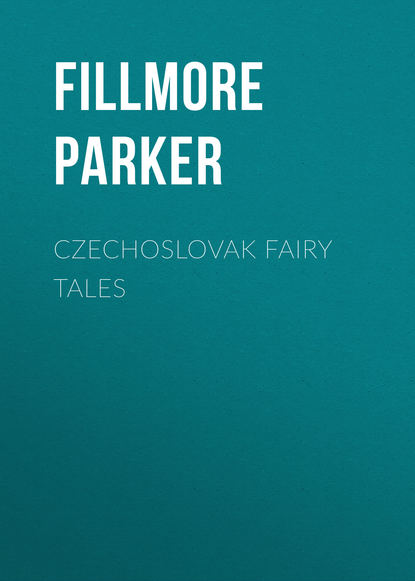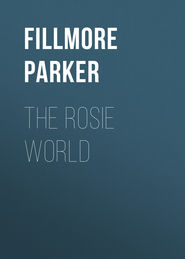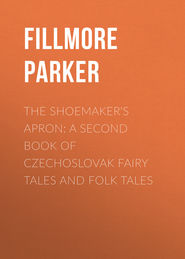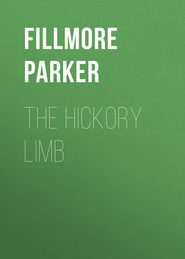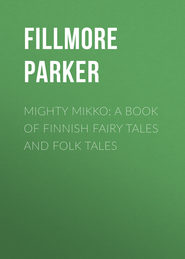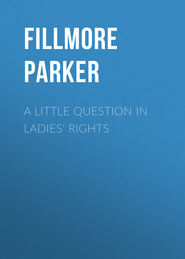По всем вопросам обращайтесь на: info@litportal.ru
(©) 2003-2024.
✖
Czechoslovak Fairy Tales
Настройки чтения
Размер шрифта
Высота строк
Поля
The next day she sent for her mother and the old woman soon arrived bringing with her Dobrunka’s spinning wheel. So now there was no more excuse for loneliness.
Dobrunka supposed that her mother would be made very happy to find what good fortune had befallen her daughter. The old woman pretended she was, but in her heart she was furious that a king had married Dobrunka and not Zloboha.
After a few days she said, very artfully, to Dobrunka: “I know, my dear daughter, that you think your sister, Zloboha, was not always kind to you in times past. She’s sorry now and I want you to forgive her and invite her here to the palace.”
“I should have asked her before this,” said Dobrunka, “but I didn’t suppose she wanted to come. If you wish it, we’ll go for her at once.”
“Yes, dear daughter, I do wish it.”
So the queen ordered the carriage and off they went to fetch Zloboha. When they came to the edge of the woods they alighted and ordered the coachman to await them there. They went on afoot to the cottage where Zloboha was expecting them.
Zloboha came running out to meet them. She threw her arms about her sister’s neck and kissed her and wished her happiness. Then the wicked sister and the wicked mother led poor unsuspecting Dobrunka into the house. Once inside Zloboha took a knife that she had ready and struck Dobrunka. Then they cut off Dobrunka’s hands and feet, gouged out her eyes, and hid her poor mutilated body in the woods. Zloboha and her mother wrapped up the hands and the feet and the eyes to carry them back with them to the palace because they believed that it would be easier for them to deceive the king if they had with them something that had belonged to Dobrunka.
Then Zloboha put on Dobrunka’s clothes and she and her mother rode back to town in the carriage and nobody could tell that she wasn’t Dobrunka. In the palace the attendants soon whispered to each other that their mistress was kinder to them at first, but they suspected nothing.
In the meantime poor Dobrunka, who was not quite dead, had been found by a hermit and carried by him to a cave. She awoke to feel a kind hand soothing her wounds and putting some reviving drops between her lips. Of course, she could not see who it was, for she had no eyes. As she regained consciousness she remembered what had happened and began bitterly to upbraid her unnatural mother and her cruel sister.
“Be quiet. Do not complain,” a low voice said. “All will yet be well.”
“How can all be well,” wept poor Dobrunka, “when I have no eyes and no feet and no hands? I shall never again see the bright sun and the green woods. I shall never again hold in my arms my beloved Dobromil. Nor shall I be able to spin fine flax for his shirts! Oh, what did I ever do to you, wicked mother, or to you, cruel sister, that you have done this to me?”
The hermit went to the entrance of the cave and called three times. Soon a boy came running in answer to the call.
“Wait here till I come back,” the hermit said.
He returned in a short time with a golden spinning wheel in his arms. He said to the boy:
“My son, take this spinning wheel to town to the king’s palace. Sit down in the courtyard near the gate and if any one asks you for how much you will sell the wheel, say: ‘For two eyes.’ Unless you are offered two eyes for it bring it back.”
The boy took the spinning wheel and carried it to town as the hermit directed. He went to the palace and sat down in the courtyard near the gate, just as Zloboha and her mother were returning from a walk.
“Look, mother!” Zloboha cried. “What a gorgeous spinning wheel! I could spin on that myself! Wait. I’ll ask whether it’s for sale.”
She went over to the boy and asked him would he sell the spinning wheel.
“Yes,” he said, “if I get what I want.”
“What do you want?”
“I want two eyes.”
“Two eyes?”
“Yes, two eyes. My father told me to accept nothing for it but two eyes. So I can’t sell it for money.”
The longer Zloboha looked at the spinning wheel the more beautiful it seemed to her and the more she wanted it. Suddenly she remembered Dobrunka’s eyes that she had hidden away.
“Mother,” she said, “as a queen I ought to have something no one else has. When the king comes home he will want me to spin, and just think how lovely I should look sitting at this golden wheel. Now we’ve got those eyes of Dobrunka’s. Let us exchange them for the golden spinning wheel. We’ll still have the hands and feet.”
The mother, who was as foolish as the daughter, agreed. So Zloboha got the eyes and gave them to the boy for the spinning wheel.
The boy hurried back to the forest and handed the eyes to the hermit. The old man took them and gently put them into place. Instantly Dobrunka could see.
The first thing she saw was the old hermit himself with his tall spare figure and long white beard. The last rays of the setting sun shone through the opening of the cave and lighted up his grave and gentle face. He looked to Dobrunka like one of God’s own saints.
“How can I ever repay you?” she said, “for all your loving kindness? Oh, that I could cover your hands with kisses!”
“Be quiet, my child,” the old man said. “If you are patient all will yet be well.”
He went out and soon returned with some delicious fruit on a wooden plate. This he carried over to the bed of leaves and moss upon which Dobrunka was lying and with his own hands he fed Dobrunka as a mother would feed her helpless child. Then he gave her a drink from a wooden cup.
Early the next morning the hermit again called three times and the boy came running at once. This time the hermit handed him a golden distaff and said:
“Take this distaff and go to the palace. Sit down in the courtyard near the gate. If any one asks you what you want for the distaff, say two feet and don’t exchange it for anything else.”
Zloboha was standing at a window of the palace looking down into the courtyard when she saw the boy with a golden distaff.
“Mother!” she cried. “Come and see! There’s that boy again sitting near the gate and this time he has a golden distaff!”
Mother and daughter at once went out to question the boy.
“What do you want for the distaff?” Zloboha asked.
“Two feet,” the boy said.
“Two feet?”
“Yes, two feet.”
“Tell me, what will your father do with two feet?”
“I don’t know. I never ask my father what he does with anything. But whatever he tells me to do, I do. That is why I can’t exchange the distaff for anything but two feet.”
“Listen, mother,” Zloboha said, “now that I have a golden spinning wheel, I ought to have a golden distaff to go with it. You know we have those two feet of Dobrunka’s hidden away. What if I gave them to the boy? We shall still have Dobrunka’s hands.”
“Well, do as you please,” the old woman said.
So Zloboha went and got Dobrunka’s feet, wrapped them up, and gave them to the boy in exchange for the distaff. Delighted with her bargain, Zloboha went to her chamber and the boy hurried back to the forest.
He gave the feet to the hermit and the old man carried them at once inside the cave. Then he rubbed Dobrunka’s wounds with some healing salve and stuck on the feet. Dobrunka wanted to jump up from the couch and walk but the old man restrained her.
“Lie quiet where you are until you are all well and then I’ll let you get up.”
Dobrunka knew that whatever the old hermit said was for her good, so she rested as he ordered.
On the third morning the hermit called the boy and gave him a golden spindle.
“Go to the palace again,” he said, “and today offer this spindle for sale. If any one asks you what you want for the spindle, say two hands. Don’t accept anything else.”





